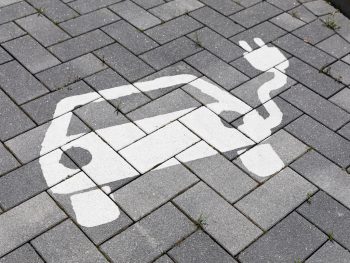Government action needed to shore up falling consumer confidence in EVs
Auto industry experts are calling on the Government to take swift action as consumer confidence in electric cars drops significantly.

Concerns about charging are also knocking consumer confidence
While latest new car figures out this week from the SMMT show EVs accounted for 20.1% of new cars reaching the road, demand is overwhelmingly being led by fleets and fleet driver demand.
Now, a new UK-wide survey of more than 11,500 private drivers reveals just 16% think the Government is right to ban sales of petrol cars in 2030.
The joint survey by Electrifying.com and the AA also found only 9% of respondents said their next car would be electric, with a staggering 87% stating that electric cars are too expensive to purchase (up from 81% in the same survey conducted in March 2021), while 66% said rising energy prices had put them off owning an electric car.
Just 8% of those surveyed have confidence in buying a used electric car, with 64% worrying unnecessarily that the battery won’t last as long as a petrol or diesel car’s engine.
The study also shows that concerns about charging are knocking consumer confidence. Although there were 48,450 electric vehicle charging points across the UK at the end of August – up 42% since August 2022 – 70% of those surveyed said they feel public charging infrastructure is unreliable (up from 56% in the same survey conducted in March 2021).
Published ahead of World EV Day (9 September), the results are said to show a significant decline in general attitudes towards electric cars in the last two years – and have prompted industry experts to apply pressure on the Government to make significant changes – and fast – in the lead up to 2030 to help drivers make the switch.
In a letter to Transport Secretary Mark Harper sent in June 2023, Electrifying.com and the AA outlined specific areas where action is urgently needed and proposed a charter to help mass market consumers make the switch to electric, ahead of the 2030 ban.
Key asks include the appointment of a Minister for EVs to coordinate different Government departments and oversee the transition to electric vehicles. They’ve also urged for improved coordination on charging “to ensure the levelling up of charge point provision and to fill the ‘EV deserts’”.
Infrastructure delays must also be tackled, speeding up the planning process and grid connections to allow charge point providers to invest with certainty.
Other priorities include a ‘Chargepoint Mandate’ to show government progress towards its goal of having 300,000 publicly available charge points by 2030. And the duo says there should be extra support for local authorities which do not have the expertise or skills for the vital task of promoting and helping the roll out EV infrastructure.
Final requests include used EV market stimulation, using a targeted education campaign to give consumers confidence in used EVs, and short-term fiscal incentives – in particular reducing VAT to 5% for on-street charging to level the playing field with home chargers and introducing a targeted incentive to buy (on new and used vehicles) for lower priced vehicles.
Edmund King, AA president, said: “There is no doubt that the higher initial cost of EVs and charging difficulties, particularly for those without off-street parking, are putting off a significant proportion of drivers from being able to make the switch.
“Financial incentives are needed to help ‘level up’ the affordability for those drivers not able to benefit from salary sacrifice or company car discounts. Once drivers are able to go electric they will enjoy the financial, driving and environmental benefits and will not look back.”
Separately, the RAC and FairCharge have also published their public charging charter to drive EV adoption today. This targets the implementation of world-class standards across the UK EV charging sector – and both organisations are calling for it to become a minimum set of standards for government, local authorities, landowners and charge point operators.
Last month saw a number of organisations call on the Prime Minister to “stand firm” on the transition to electric vehicles amid mounting concerns of a U-turn on targets. While the ZEV mandate is due to take effect from 2024, setting binding targets for zero-emission car and van production, reports had suggested that policies could be watered down on the back of lobbying by carmakers.
Speaking this week as the latest EV registration figures were announced, the SMMT, leasing firms and other EV stakeholders have called for urgent insights on the ZEV mandate as they warn that clarity is needed. A robust mandate will support further investment and innovation in EVs and makes the UK a key place for manufacturers to launch and sell electric models.
Fewer than half of private drivers willing to make EV switch, finds Auto Trader

New EVs are still on average 33% more expensive than traditionally fuelled vehicles, according to Auto Trader
The findings from the new survey chime with latest consumer research also out from Auto Trader. Its latest Road to 2030 report, based on a poll of 4,000 private drivers across the UK, reveals just 47% consider that owning an EV would fit in with their lifestyle and the same percentage are worried over a lack of charging points.
Auto Trader also highlights that the affordability gap has widened for new EVs, with just nine models now on sale for less than £30,000 compared to 11 at the end of 2022. New EVs are still on average 33% more expensive than traditionally fuelled vehicles.
However, Auto Trader says it’s seen demand for second-hand EVs increase significantly, with current levels up 68.6% compared with August last year – bucking other latest research indicating a lack of driver appetite for used EVs. It’s the result of a softening in prices, which has been fuelled by a significant growth in supply as brand-new EVs bought on finance or leasing contracts three to four years ago re-enter the market.
But while the oversupply of EVs has been effective in driving down used prices and encouraging consumers to consider the switch, Auto Trader says uptake is still limited to wealthier private drivers as concerns over affordability and charging hold back the push towards mass adoption.
And it’s adding to calls for the Government to make EVs more affordable by using incentives in the tax system “rather than relying on unsustainable market dynamics”. Along with organisations such as the AA, it’s calling for equal VAT treatment for public and private charging points, as well as the use of incentives such as VAT cuts on the sale of used EVs.
Other requests include cheaper financing deals for new models, to extend adoption beyond wealthier income groups with access to home charging. The company is also pressing for improved information on battery health to bolster both consumer and retailer confidence in used models.
Ian Plummer, commercial director at Auto Trader, said: “There is still much more work to be done to achieve a mass transition to electric vehicles before the 2030 ban on new petrol and diesel models and ensure no driver is left behind. Support from the tax system to put the used EV market on a more robust footing is vital for the sustainability of the entire EV market and our chances of successfully transitioning to EVs by 2030.”
MotoNovo Finance has also said that government support is needed to drive used EV take-up. Richard Jones, head of the car finance provider, highlighted that increased demand will be healthy for both the new and used BEV markets – even if that means switching some of the current support for new cars to the used car sector.
And automotive technology firm Regit has said the closing the used EV ‘information gap’ would help persuade buyers to go electric.
Writing in Cox Automotive’s latest AutoFocus quarterly insight, Regit founder and CEO Chris Green said “encouraging” numbers of motorists would be happy to consider buying such a vehicle if they had access to comprehensive and useful information; in its survey, 76% of respondents said there was a distinct lack of information about EVs online to help inform a switch.












